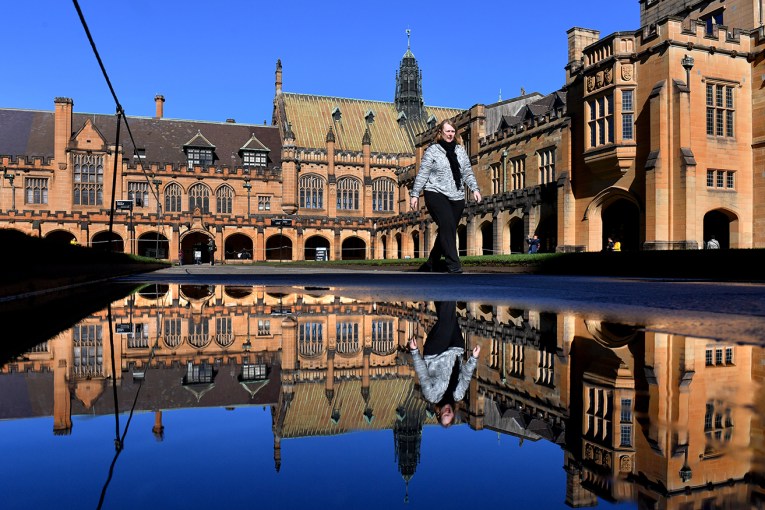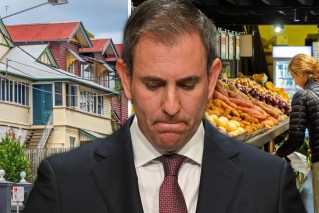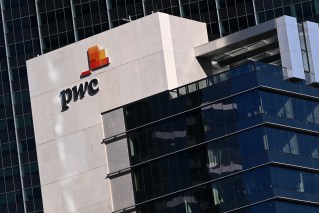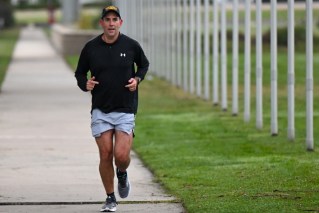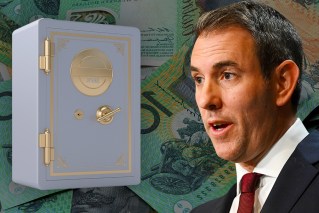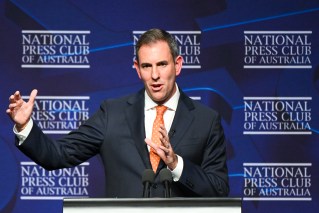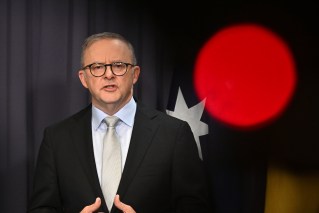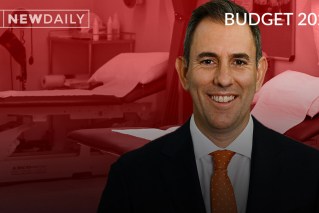‘Absolute disgrace’: Budget slammed for aged care and climate failures as winners and losers emerge
The 2022 federal budget has been labelled a “failure” by aged-care workers and “disappointing” on climate change as the Morrison government’s $16.4 billion pre-election cash splash fails to impress many experts.
Temporary cuts to fuel taxes and an increase in the low-and-middle-income tax offset (LMITO) are major parts of a budget cost-of-living package unveiled by Treasurer Josh Frydenberg on Tuesday evening.
But the 2022 budget was silent on higher wages for aged-care workers and stopped short of a major step up in efforts to reduce Australia’s carbon emissions – two policy areas that have emerged as major losers.
UnitingCare Australia national director Claerwen Little said it was an “absolute disgrace” that aged-care workers received a minimum hourly wage of $21.
“We need to make sure that when the Fair Work decision comes [it’s] adequate for those workers and that money is stumped up by whoever’s in government at the time,” she said.
Climate Council economist Nicki Hutley said the budget was a “massive missed opportunity” for action to tackle the climate crisis, with just 0.3 per cent of government spending allocated to reducing emissions.
“Rather than investing in a green economic future – they’re tossing pennies at genuine emissions reduction initiatives,” she said.
Here are this year’s budget winners and losers.
Budget winners
Millions of taxpayers
- The low-and-middle-income tax offset (LMITO) has been increased by $420 per person in 2021-2022
- 10 million taxpayers with annual incomes up to $126,000 will benefit
- The top payment will rise from $1080 to $1500, while the smallest payment will increase from $256 to $676
- The expansion will cost the budget $11.9 billion – up from $7.8 billion.
Motorists
- The 44.2 cents-per-litre petrol excise has been halved, to 22.1 cents, for six months
- The change will take effect from Wednesday
- Bowser prices will fall by 22.1 cents per litre over the next two weeks
- An average family with two cars will save about $30 every week until September 28 when the tax break expires, raising fuel prices again
- The ACCC will ensure retailers pass on the tax cut to motorists.
Apprentices and their bosses
- Apprentices, trainees and their employers will receive $1.3 billion in wage subsidies and cash payments over the next five years in a bid to boost Australia’s skills pipeline
- Apprentices and trainees in priority industries (which are yet to be confirmed) will receive a $5000 payment, split into four instalments every six months for three years
- First- and second-year apprentices in priority industries will have 10 per cent of their wages paid by taxpayers through to 2025-26, falling to 5 per cent in their third year
- It comes in addition to $365 million in wage subsidies for all apprentices and trainees that will be paid out over the next three months under extended COVID measures.
Small business owners
- Small businesses with an annual turnover of less than $50 million will from Tuesday night be able to deduct 20 per cent of the cost of training their employees
- Mr Frydenberg said this means for every $100 a small business spends on training their staff, they will get a $120 tax deduction
- Similarly, small businesses will be able to deduct 20 per cent of the cost of purchasing equipment to digitalise their businesses, such as portable payment devices, cyber security systems or subscriptions to cloud-based services
- An additional $53.9 million will be spent to continue COVID-19 business support payments and pandemic leave disaster payments
- The government is cutting red tape for fuel and alcohol small businesses that earn less than $50 million by allowing them to lodge returns and pay excises on a quarterly rather than weekly basis.

Budget losers
Aged-care workers
- The budget is largely silent on the aged-care staffing crisis, which experts say is being driven by low wages and torrid working conditions across the sector
- No additional money was outlaid by the government to boost wages for these workers
- Funding for the sector still falls short of what was recommended by the Aged Care Royal Commission, despite an additional $468 million for the industry in this year’s budget
- That funding injection largely focused on the creation of an additional 15,000 training places, but advocates said that means little without higher pay rates.
Ms Smith said the budget also lacked investment to address staffing shortages in aged-care facilities.
“The only extra money we see tonight is money for training, [but] what is the use of extra money for training of the aged-care workforce when we know workers are leaving the sector in record numbers because of the understaffing and the low wages in aged care?” She said.
Aged-care worker Marina called the budget a “failure” because it said nothing about lifting wages for her and her colleagues.
“We asked for a decent wage so that we could have the dignity to go back to our families. To be treated like people, not like animals.”
Emissions reduction and climate
- The government has failed to lift its 2030 emissions reduction target from a 35 per cent reduction to 50 per cent, despite calls from the international community and climate scientists across the country
- A reduction in the funding profile of the Australian Renewable Energy Agency (ARENA) will see government expenses under its energy component fall by 15.4 per cent from 2022-23 to 2025-26
- The budget pledges $446 million over five years for various programs designed to encourage low-emissions technology and energy reliability
- About $247 million of this funding has been directed to hydrogen projects, while $50.3 million will be spent on investments in the gas industry
- Electric vehicles did not merit a single mention among the 2022-23 budget measures.
Australia Institute climate and energy program director Richie Merzian said the fuel excise cut was “bad economic management” that would increase carbon emissions because driving will become cheaper.
“Over the last nine years the government has left Australians hooked on foreign oil and done nothing to wean it off,” he said.
“(The government has) nothing on fuel efficiency standards, nothing on electrifying our cars and very little on public and active transport.”
Tweet from @MichaelM_ACT
